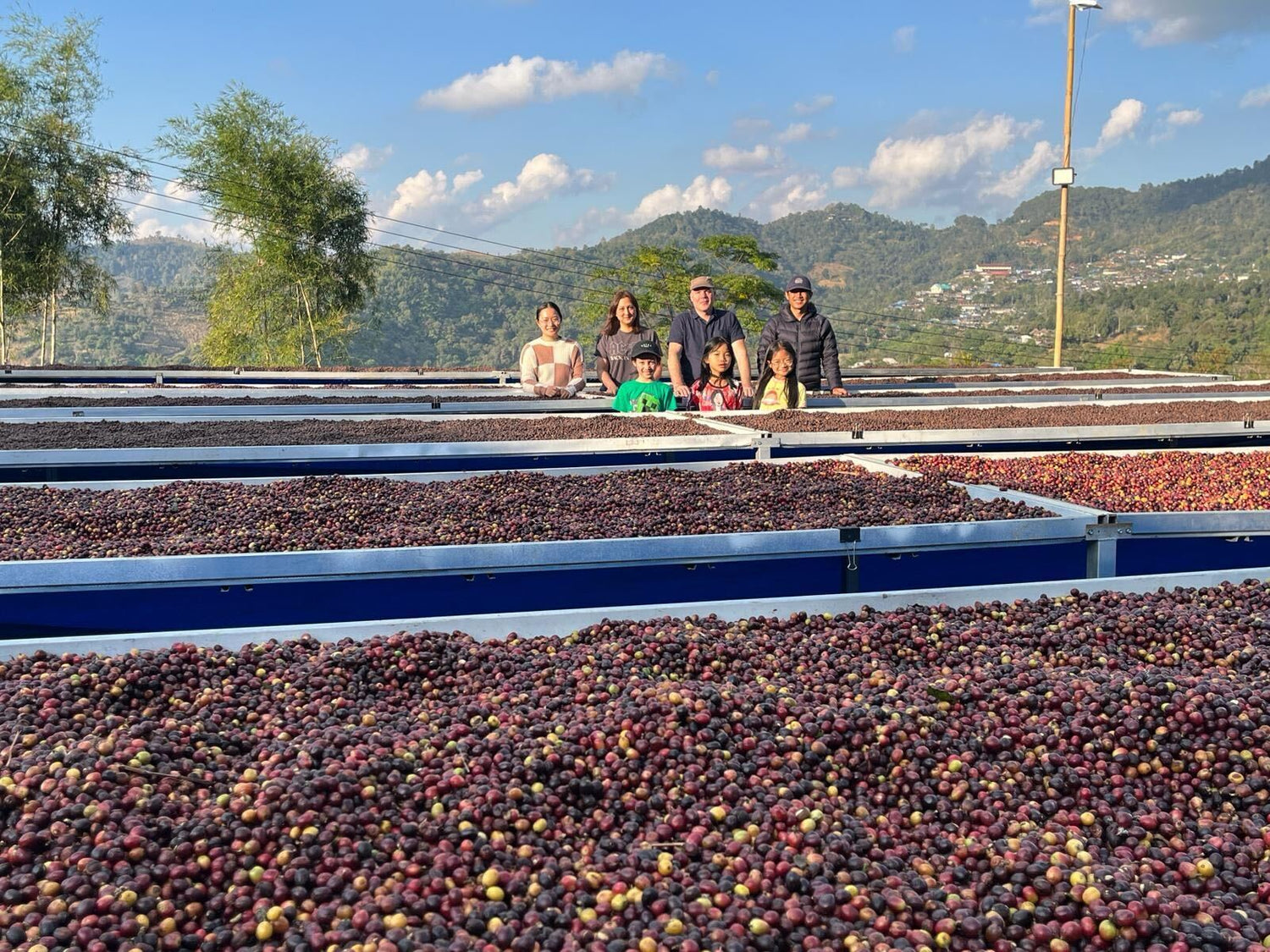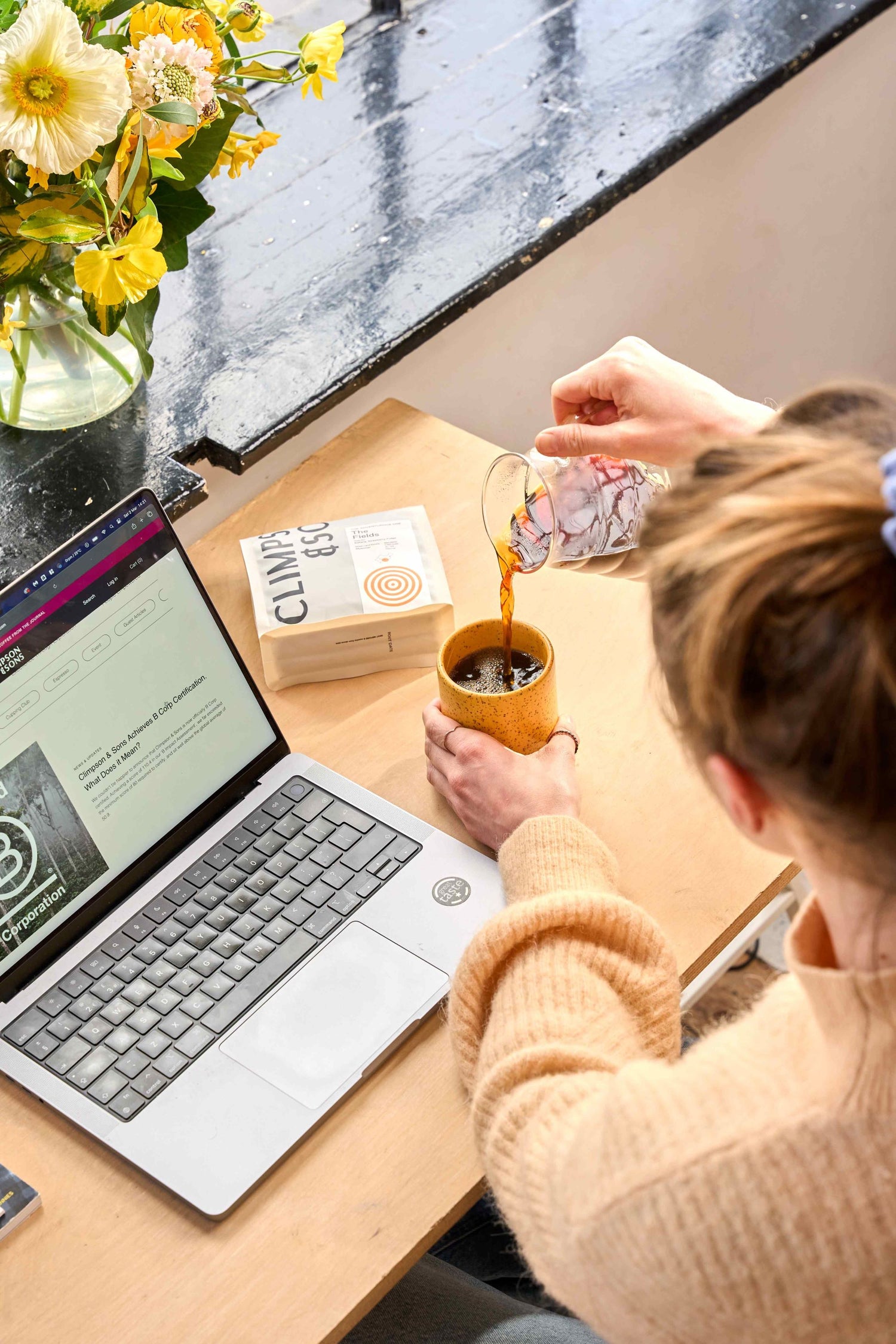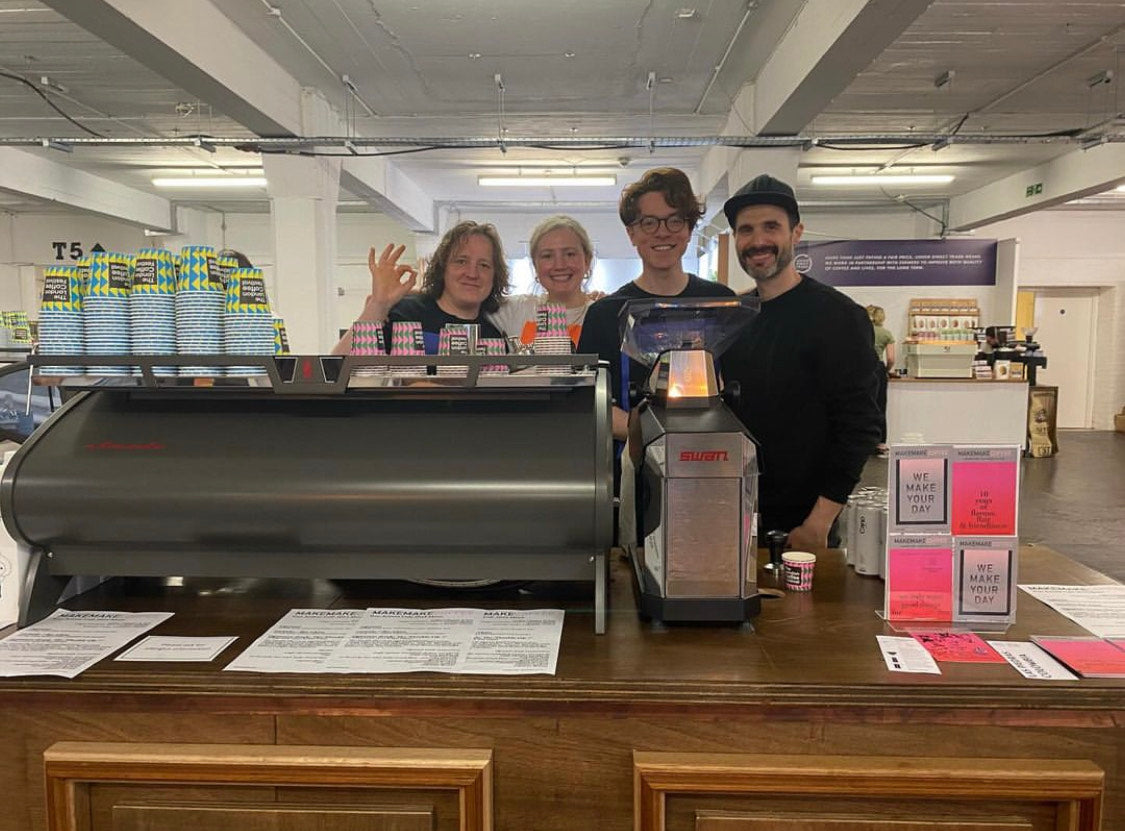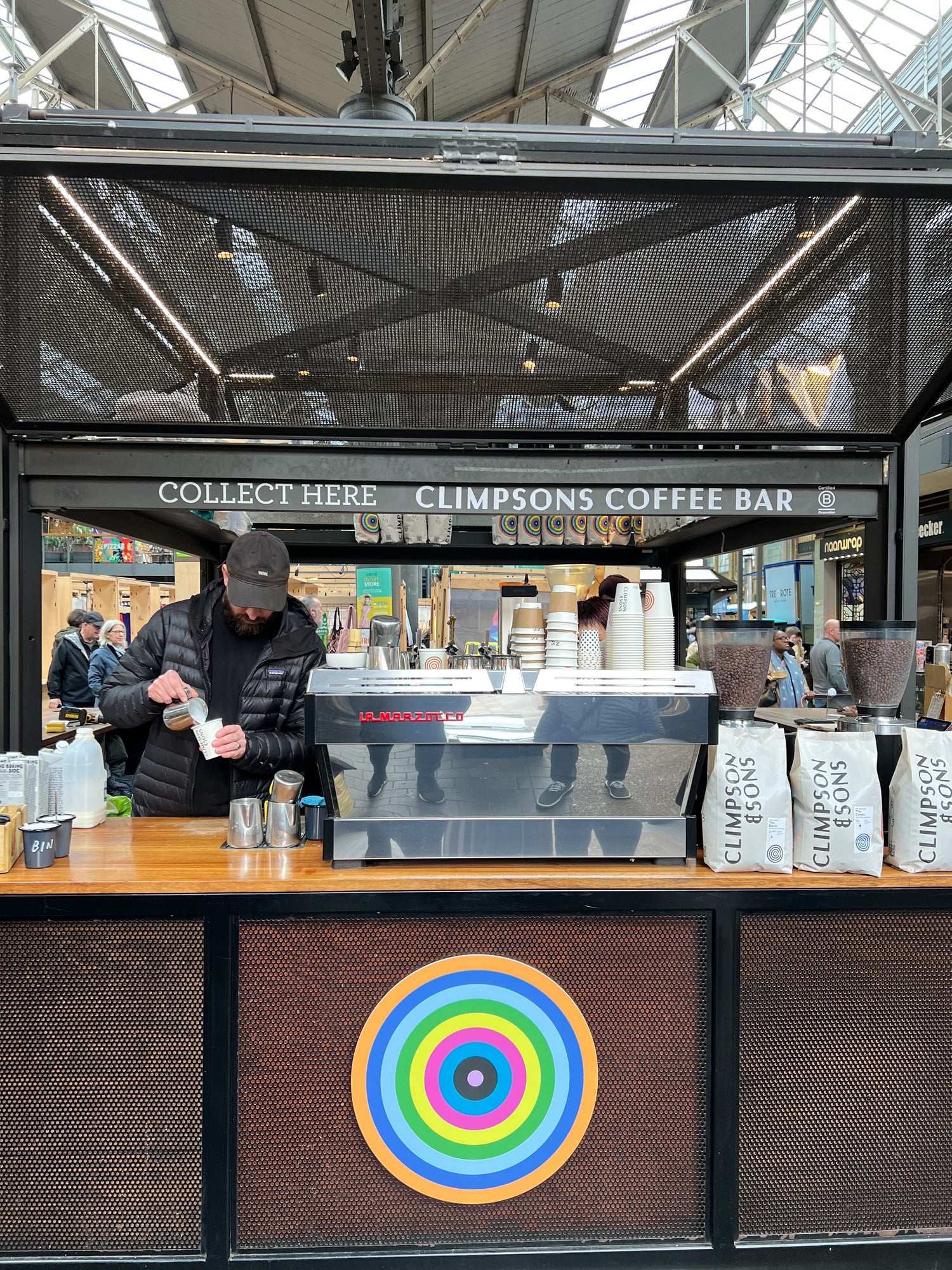Recently we welcomed Christian and Aidan from Indochina Coffee for a deep-dive on all things Thai coffee. Importing coffee from varied producers in Asia since 2017, Indochina was born as a way to promote the breadth and quality of specialty coffees from the region that previously hadn’t been available on the European specialty scene. We’ve been working with Shirani and Christian from Indochina since their early days importing coffee to the UK. Thanks to them, we’ve had access to some of the most interesting coffees coming out of Asia right now. Sending a big thank you to Indochina for sharing their knowledge, passion and ethical sourcing acumen.
As well as cupping some incredible coffees, we gathered an insight on the interesting history of the relatively emerging coffee producing country of Thailand, as well as tasting and discussing the similarities and differences with neighbouring coffee productions in Myanmar.

This falls right in time for the return of 2023s most talked about coffee, an exclusive and uniquely processed natural lot from Sirinya in the Chiang Rai highlands of Thailand as well as the all-female production of Nwar Ban Gyi (aka the Lady) in Myanmar which forms our current edition of The Fields.
History of coffee in Thailand
Coffee has been grown in Thailand for a relatively short period of time, with cultivation beginning in the 1960s as an alternative crop to opium. An alternative development project championed by the late King Bhumibol Adulyadej (Rama 1X) can be seen as a key marker in the shift away from poppy cultivation and towards coffee production, the effects of which were seen first hand by Shirani and Christian of Indochina Coffee when working in international development in Bangkok, just before starting their coffee importing journey.
The conditions to grow both opium and coffee are fairly similar. The ground soil is incredibly fertile, and at such a high altitude, most crops would thrive. The mornings are cold while the afternoon’s will experience a sub-tropical temperature before cooling very quickly. However, opium growing, as well as holding the obvious ethical concerns and questionable buyers (international drug syndicates do not provide the most reliable and transparent of supply chains, it seems) also follows a ‘slash and burn’ agricultural method, in which farmed land is clear cut and all remaining vegetation burnt. Typically this would be done for two harvests a year, significantly depleting natural resources and leading to increased soil erosion.
The highland areas of the Mekong are home to multiple minority ethnic groups, where the borders between countries and regions are porous and non-distinct. These rural regions typically had poor poverty and health outcomes, with few opportunities outside of opium production available. Between 1998 and 2006, opium production in the Greater Mekong region (or the notorious ‘Golden Triangle’) fell by more than 80% with much of this agricultural shift towards coffee. Coffee cultivation has helped to provide safe and sustainable long-term livelihoods for 1000s of farmers in the region.
In Thailand in particular, half of all coffee produced is arabica, with almost all of this being produced for the specialty market within the country itself where there’s a thriving cafe culture and domestic consumption. It’s important to note that these coffees are not specifically produced for a global market and producers like Sirinya could very easily sell these highest-grade specialty lots to Thai roasters in the booming domestic specialty scene. Because of this, Thai producers are not desperately seeking overseas buyers and we can consider ourselves very lucky to roast, brew and drink these coffees.
Coffee and the fight against deforestation
As well as providing a more ethical and sustainable income for the region, coffee production in the North of Thailand also contributes towards the fight against deforestation. In the last 30 years, Thailand has lost nearly 50% of its native forests. With tropical forests acting as one of the world’s most important natural carbon sinks - absorbing carbon dioxide from the atmosphere and storing it - the loss of these native trees can dramatically exacerbate the effect of climate change.
Investment in naturally shade-grown coffee can provide a vital step towards reforestation, with farmers planting native trees as well as coffee plants as a source of shade. In this agroforestry system, shade trees can act as a carbon pool, reducing the farms carbon footprint through carbon sequestration.
Spotlight on: Sirinya
Sirinya Coffee is a family-run specialty coffee farm, roastery, and coffee shop based in the mountains of Chiang Rai province, led by Oil and Goh Chaosuwanwilai. Their production began 40 years ago and was born out of a commitment to stewardship of the land and a dedication to the pursuit of excellent coffee and innovative processing. Their cafe is a true bean to cup location, where coffee can be grown, processed, roasted and enjoyed, all from the very same soil.
Working from bean to cup in this way gives Oil and Goh a unique perspective and opens the doors to experimentation, first experimenting with around 40 lots. They have differentiated themselves from other farmers by focussing on precision and quality.

This year, we’ve roasted an exclusive natural lot, born of an innovative Mossto natural process. Whole ripe cherries are fermented in a layer of coffee cherry juice before being dried in temperature controlled beds to stabilise a 10-12% moisture, resulting in an intense complexity.
This is a unique coffee, with Climpsons exclusively roasting the only lot to be exported to the UK. Try the coffee here … before we drink it all.



